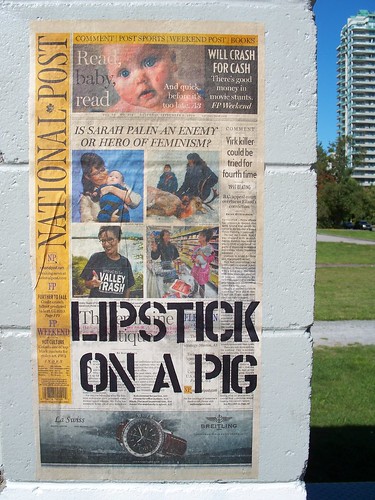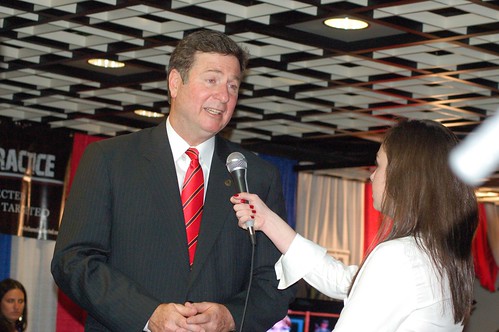A Rhetoric of the Gaffe: Restoring Dialogism in an Age of Message Discipline
Posted in The Gnovis Blog
For a long time now, I’ve wanted to write a rhetorical analysis of the political gaffe using the work of Bakhtin and Foucault as theoretical frameworks for my analysis. In truth, I love the gaffe, perhaps more than I should given my interest in strategic political communication.
In contemporary political discourse, gaffes have become central rhetorical indices for evaluating the efficacy of politicians, policy decisions, and the news media. In the digital age where communication is constant and everywhere, the solution of message discipline has emerged as a omnipresent political practice to mitigate the impact of gaffes. In spite of this practice–or perhaps because of it–the political power of the gaffe has never been stronger. In some ways gaffes seem like a nuisance, a source of distraction for both politicians and citizens alike. Critics cite concerns about the eroding quality of the national discourse that a focus on gaffes represents. I disagree.

Gaffes play as central a role as the political speeches, debates, and policy statements that we have long accepted as normalized acts or performances of political speech–acts that serve to dialogize the democratic process. Arguing that the occurrence of a gaffe is no different than “normal” political messages or performances seems paradoxical: if in actuality, the gaffe is no different, how is it that according to the logic of political discourse, a gaffe is understood to be anomalous and unique?
The paradox arises in the contrast between the function of social heteroglossia, and the function of language under the ordering principles of a discursive system. As Foucault and others have argued, ordering principles in discursive systems offer only the illusion of stable definitions or meaning. Meaning is always bound by context, and therefore, the norms in a discursive system seek to control the contextualized definitions of truth and error.
While necessary for the establishment and preservation of the discourse, these controlling elements are illusory and always vulnerable to breaking apart. As Foucault writes, “in every society the production of discourse is at once controlled, selected, organized, and redistributed by a certain number of procedures whose role is to ward off its powers and dangers, to gain mastery over its chance events, to evade it ponderous materiality.”
With Foucault in mind, resolving the appearance of the paradox of the gaffe is simple: given the importance of establishing identity and meaning, the discourse of political communication exists to master the materiality, or heteroglossia, surrounding the political utterance; a normal utterance like a political act, message or performance is seemingly able to hide this controlling intent; a gaffe, as one of the chance events of “ponderous materiality,” does not.
Gaffes and normalized political utterances are fundamentally similar acts; the difference, of course, is that one seems to deny social heteroglossia, while the other seems dangerously open to it. This difference is illusory and symptomatic of an operating principle of a specific discourse, not a fundamental distinction between the two acts. The dialogism of the utterance in social heteroglossia is in every political act, message or performance; unlike the “gaffe,” in normalized utterances, these qualities are intentionally hidden. The gaffe is a dangerous nuisance, an error of undisciplined political speech.

We have now come to an important point in thinking about the gaffe as a Bakhtinian utterance: rather than simply an error of a normalized practice, a gaffe is a powerful light, with the ability to illuminate the controlling intent of all political communication. The function of the gaffe is to illuminate the always already there boundaries of the discourse, how that discourse is being managed, manipulated, and controlled; a gaffe does not, however, violate or create these boundaries—as the logic of the discourse encourages us to think.
A gaffe, then, can now be understood as political utterance of critical importance. In the age of message discipline, a communicative breakdown like the gaffe allows for the potential of an authentic, diverse engagement with political rhetoric. A gaffe restores a temporary dialogism to a political process that, sometimes, can feel disappointingly monologic in the message discipline era.
